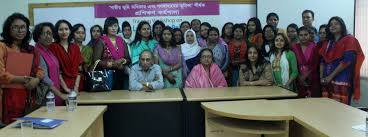Protect farmers from Covid-19 fallout
Experts and researchers from six Asian countries have called for implementing agrarian and social security reforms to protect farmers from the adverse impacts of Covid-19
They made the call at an international webinar yesterday. The event, titled "Ensuring land and food rights at a time of Covid-19 and beyond", was organised jointly by Association for Land Reform and Development (ALRD) and The Daily Star.
In his keynote presentation, eminent researcher Antonio B Quizon touched upon issues like increased rural indebtedness forces small farmers to sell off their homes and farmlands; agrarian reforms have slowed down as government's priorities have been shifted elsewhere; agricultural workers are not being properly paid; and pastoralist communities and indigenous people have been impacted as national borders have been closed.
"On the other hand, politicians and state leaders have taken advantage of the pandemic to consolidate their power by suppressing dissent," said Quizon, former chairperson and executive director of NGO Coalition for Agrarian Reform and Rural Development (ANGOC).
Overall, the Covid-19 health crisis has created an environment, where it is easier to violate the land tenure rights of vulnerable populations, he added.
At the webinar, participants from Bangladesh, India, Nepal, Cambodia, Indonesia and Philippines discussed farmers' land rights situation in their respective countries.
ALRD Deputy Executive Director Rowshan Jahan Moni said, "Despite bumper production of rice this year, harvested crops could not reach markets in time due to [the coronavirus-driven] lockdown. Incidents of land grabbing of minorities and indigenous people and violence against women, including their rape and torture, have also increased."
Ujjaini Halim, executive director, Institute for Motivating Self Employment (IMSE), India, said at present, 60 percent of India's population or an estimated 812 million people live below the World Bank-determined poverty line of $3.2 a day for lower middle income countries. Due to the pandemic, 104 million more people could fall below that poverty line in India."
Dewi Kartika, general secretary of Konsorsium Pembaruan Agraria (KPA) from Indonesia, said, "Agrarian conflicts have increased during this pandemic due to increased land grabbing, intimidation and political suppression. Demonstration and street protests have been prohibited or restricted in many countries."
Jagat Deuja, former executive director, Community Self Reliance Centre (CSRC) and Expert Member of Land Issues Resolving Commission, Nepal said, "Violence and abuse have increased up to eight percent in Nepal during this pandemic. Farmers are also being forced to sell their products at much lower rate than the normal market price."
Vaing Samrith, programme manager, Star Kampuchea from Cambodia, said, "Many farmers who had taken loans from banks could not pay them back as they could not cultivate their lands or sell their goods during the lockdown. They are now selling their lands to repay the loan."
Nathaniel Marquez Don, executive director, Asian NGO Coalition for Agrarian Reform and Rural Development, said, " In the Philippines, more than two million hectares of lands have been contested in the last nine months which is way more than the normal times. An estimated 252,241 households have been adversely affected by these conflicts."
Followed by the participant's presentation, a panel discussion took place where panelists emphasised on immediate land reforms so that farmers' rights on lands can be protected legally. They also demanded reformation of social safety net programmes to include more farmers and small entrepreneurs in them.
Syeda Rizwana Hasan, chief executive, Bangladesh Environmental Lawyers Association (Bela), said, "We need to have law on right to food, we need to have legal promulgation on farmers' rights and we need to have law on the protection of agricultural land."
Prof Rashed Al Mahmud Titumir of Dhaka University's Department of Development Studies said, "To increase resilience against food insecurity and poverty induced by this pandemic, we need to introduce a universal social security system which covers formal education, nutrition, medical services and skill development training. This social security system is based on the human life cycle, which provides support for every phase of our life cycle."
Mohammed Helal Uddin, director research at Centre for Integrated Rural Development for Asia and the Pacific (Cirdap), said, "According to the current vaccine development trends, we can estimate that the pandemic may last for at least another one to three years."
"This duration will prove fatal for many small farmers and entrepreneurs who don't have enough savings to sustain for such a long time. The governments should bring these extremely vulnerable populations under the social safety net programmes," he added.
https://www.thedailystar.net/frontpage/news/protect-farmers-covid-19-fallout-2013605





